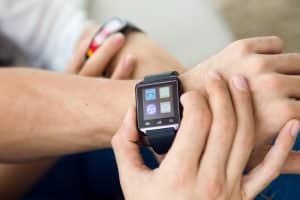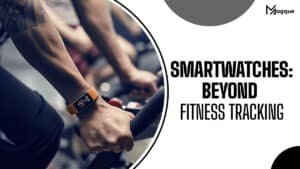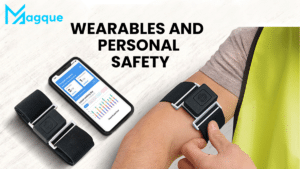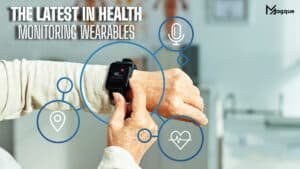Wearable technology has permeated various aspects of our lives, from tracking our steps to monitoring our heart rate during workouts. But did you know wearables also make significant strides in the healthcare industry? That’s right, wearables in healthcare are revolutionizing patient monitoring and transforming how we approach healthcare delivery.
Breaking Down the Benefits
Wearable devices in healthcare offer many benefits for patients and healthcare providers. These devices provide patients with a sense of empowerment and autonomy over their health. Imagine monitoring your heart rate, blood pressure, and activity levels in real-time, all from your home. It’s like having a personal health assistant right at your fingertips.
But the benefits don’t stop there. For healthcare providers, wearable technology enables remote patient monitoring, allowing them to monitor patients’ health without frequent in-person visits. This improves patient outcomes by detecting health issues early, reduces healthcare costs, and alleviates strain on medical resources.
Challenges and Opportunities
Of course, like any emerging technology, wearables in healthcare come with their challenges. Ensuring data accuracy and privacy protection are paramount concerns, as is seamlessly integrating wearable data into existing healthcare systems. However, these challenges also present opportunities for innovation and collaboration between tech companies, healthcare providers, and regulatory bodies.
The Future of Healthcare
As wearable technology continues to evolve, the possibilities for its integration into healthcare are endless. From monitoring chronic conditions to facilitating telemedicine consultations, the future of healthcare is undoubtedly intertwined with wearables. The key lies in harnessing the power of these devices to improve patient outcomes, enhance the patient experience, and, ultimately, transform the way we deliver healthcare.
So, are wearables in healthcare worth the hype? Absolutely. With the potential to revolutionize patient monitoring, improve healthcare delivery, and empower individuals to take control of their health, wearables are poised to play a pivotal role in shaping the future of healthcare.
For more insights on the intersection of technology and healthcare, stay tuned to Magque!
FAQs
1. How do wearables benefit healthcare?
Wearables offer various benefits in healthcare, including remote patient monitoring, real-time health tracking, and improved patient engagement. They empower individuals to take control of their health and enable healthcare providers to monitor patients’ health status more efficiently.
2. Are wearables accurate in healthcare monitoring?
While wearables have improved significantly over the years, their precision can vary depending on device quality and placement. Choosing reliable wearables and validating their accuracy for specific healthcare monitoring purposes is essential.
3. What types of healthcare monitoring can wearables perform?
Wearables can monitor a wide range of health metrics, including heart rate, blood pressure, activity levels, sleep patterns, and even glucose levels for diabetic patients. These devices can provide valuable insights into patients’ health status and help detect health issues early.
4. How do wearables ensure data privacy in healthcare?
Data privacy is a crucial concern when using wearables in healthcare. Manufacturers implement various security measures, such as encryption and secure data transmission, to protect users’ health data. Additionally, healthcare providers adhere to strict privacy regulations like HIPAA to safeguard patient information.
5. What are the challenges of integrating wearables into healthcare systems?
Integrating wearables into healthcare systems poses challenges such as interoperability issues, data integration complexities, and ensuring seamless communication between devices and existing healthcare infrastructure. However, ongoing technological advancements and collaboration between stakeholders aim to address these challenges and optimize the integration of wearables into healthcare delivery.
Read Also This:- Wearable Technology in Healthcare













